Conservatory Roof Systems & Components
Understand how each system works, the typical issues to watch for, and the most common repairs — with real recent requests from across the UK.
Polycarbonate
Lightweight multiwall sheets with glazing bars and end caps. Cost-effective but needs good sealing and drainage.
One of the most widely used options still used in UK conservatories thanks to their affordability and light weight. They're quick to install and budget-friendly, particularly on lean-to and older builds. While they don’t insulate as well as glass or tiles, they provide natural light without a big spend.
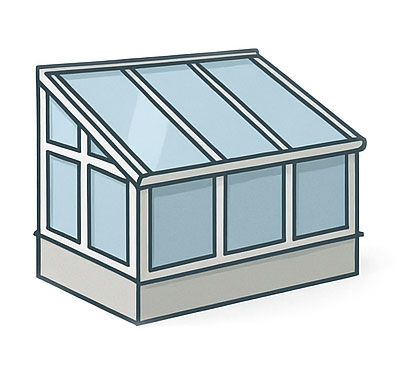
Pros & Cons
| Pros | Cons |
|---|---|
| Affordable | Can yellow/age under UV |
| Quick to replace panels | Noisy in heavy rain |
| Decent light transmission | Prone to panel slip/end-cap failure |
| Lightweight on frames |
Common Repairs
- Replace slipped/dislodged panels
- Renew perished glazing bar gaskets
- Fit new end caps and breather/anti-dust tapes
- Reseal joints and clean drainage paths
Maintenance & Safety
Difficulty: Easy–Moderate
Maintenance: Clean box gutters twice yearly; check end caps and bar caps each spring/autumn.
Safety: Fragile surface — never stand directly on panels; use boards/roof ladders.
Recent requests
- Replace Discoloured Polycarbonate Sheet — Tanerdy, Carmarthen (12 Feb 2026)
- Polycarbonate Panel Repack & Refix — Rusholme, Manchester (12 Feb 2026)
- Secure Loose Glazing Bar Cap — Dodworth, Barnsley (12 Feb 2026)
Glass
Double- or triple-glazed roof units with beads and cappings. Bright, durable and premium-looking.
A popular upgrade when looking for a premium finish. They provide unrivalled clarity and offer improved insulation and solar control, making it more comfortable year-round. Heavier and expensive to replace, many view them as a long-term investment.
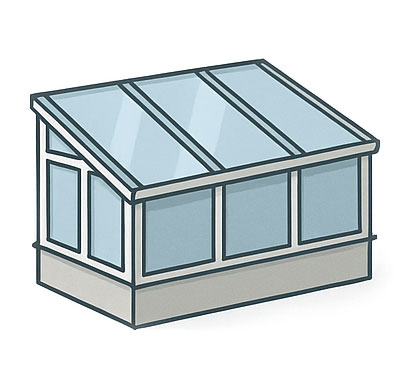
Pros & Cons
| Pros | Cons |
|---|---|
| Excellent clarity | Heavier than polycarbonate |
| Long lifespan | Failed/misted units need replacement |
| Low maintenance with quality seals | More complex cappings/ridge details |
Common Repairs
- Replace failed/misted roof glass units
- Reseal top capping and ridge joints
- Clear drainage slots under glazing
- Repack and re-bead loose panes
Maintenance & Safety
Difficulty: Moderate–Specialist
Maintenance: Inspect ridge/cappings annually; keep drainage slots clear for run-off.
Safety: Glass handling requires PPE and safe access; panes are heavy and awkward at height.
Recent requests
- After Storm Damage: Misted Double-Glazed Roof Unit — Fulwood, Sheffield (12 Feb 2026)
- Glazing Bead Refit & Seal — Howden, Livingston (12 Feb 2026)
- Inspection: Top Capping Leak Investigation (Edwardian) — Crookes, Sheffield (11 Feb 2026)
Tiled Warm Roof
Lightweight tiles over insulated deck/rafters. Improves comfort, reduces noise and condensation.
Often fitted as part of a conservatory upgrade, the insulation reduces glare and temperature swings, allowing the conservatory can be enjoyed all year. These systems do cost more and should be installed by specialists, but they’re popular when looking to make your conservatory part of the main home.
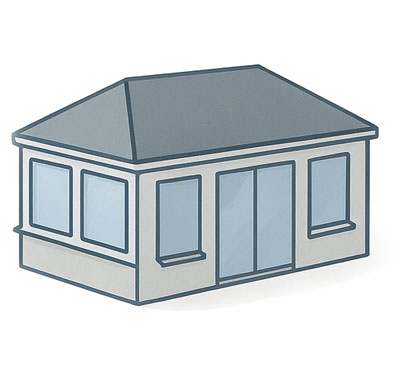
Pros & Cons
| Pros | Cons |
|---|---|
| Great insulation/comfort | Higher upfront cost |
| Quieter in rain | Requires correct ventilation |
| Attractive external finish | Trims/ridge need periodic checks |
Common Repairs
- Refix slipped tiles or ridge/hip caps
- Patch torn underlay causing local leak
- Reseal eaves/verge trims and fixings
- Verify ventilation paths to prevent condensation
Maintenance & Safety
Difficulty: Specialist
Maintenance: Check ridge/verge/eaves trims after storms; keep ventilation paths clear.
Safety: Work at height on pitched surfaces; fall protection and safe access required.
Recent requests
- Inspection: Warm Roof Re-seal at Eaves — Prestatyn fringe, Rhyl (13 Feb 2026)
- Replace Damaged Verge Trim (rear conservatory) — Tile Hill, Coventry (13 Feb 2026)
- Repair Slip at Roof-to-Wall Abutment — Portslade, Brighton and Hove (12 Feb 2026)
Box Gutter / Drainage
Channels that collect roof water and discharge via outlets/downpipes. A common source of overflows and leaks.
Essential for handling large amounts of rainwater on more complicated conservatory designs, they quietly keep water away from vulnerable joints. When blocked or degraded, they’re one of the most common leak points. Regular cleaning and resealing will add years of life to both your conservatory and home.
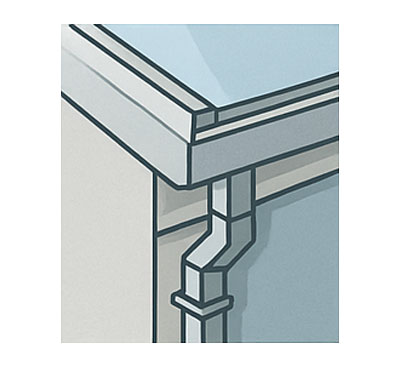
Pros & Cons
| Pros | Cons |
|---|---|
| Manages water from complex roofs | Prone to leaf/sludge build-up |
| Can be relined or regraded locally | Pinholes and seam leaks occur over time |
Common Repairs
- Deep clean and reseal gutter joints
- Reline sections and improve falls
- Reseal/resize outlets; fit leaf guards
- Clear downpipes and test flow
Maintenance & Safety
Difficulty: Easy–Moderate
Maintenance: Biannual clears (spring/autumn), plus after major storms if trees overhang.
Safety: Confined, slippery channels — use safe access and avoid leaning over fragile roofs.
Recent requests
- After Storm Damage: Box Gutter Leak Repair — Pontcanna, Cardiff (13 Feb 2026)
- Overflow Baffle/Deflector Install (Orangery) — Withdean, Brighton and Hove (11 Feb 2026)
- Downpipe/Spout Unblock & Test — Dyce, Aberdeen (11 Feb 2026)
Gaskets & Trims (uPVC)
Seals and finishing trims around glazing bars and perimeters. Small parts, big impact on weathering.
These small components are critical to keeping your conservatory watertight and draught-free. Gaskets and trims can shrink, crack, or loosen, but they’re usually simple and inexpensive to replace. Many repairs involve little more than swapping a gasket or clipping a bar cap back into place.
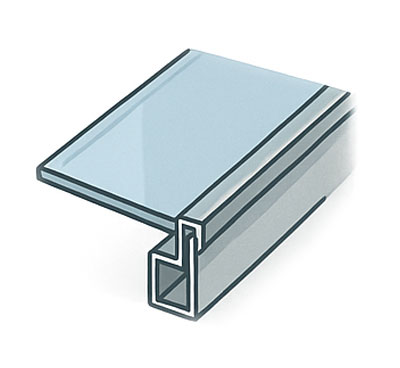
Pros & Cons
| Pros | Cons |
|---|---|
| Cheap to replace | UV ageing and shrinkage common |
| Quick, targeted fixes | Loose caps rattle in wind and let rain track in |
| Immediate improvement to draughts/leaks |
Common Repairs
- Replace perished gaskets and closure strips
- Reclip glazing bar caps; add missing clips
- Neat perimeter reseal to stop water tracking
- Swap UV-brittle trim sections like-for-like
Maintenance & Safety
Difficulty: Easy
Maintenance: Inspect caps/gaskets twice a year; address small gaps before winter.
Safety: Fragile surfaces nearby — use crawl boards; avoid over-sealing that blocks drainage.
Flashing / Wall Abutment
Where roof meets house wall; relies on chased and lapped lead or proprietary flashings to keep water out.
Where your conservatory roof meets the house is another hotspot for leaks. Lead or proprietary flashing diverts water away, which lasts for years but can eventually split, lift, or fail at mortar joints. Repointing and resealing are common repairs.
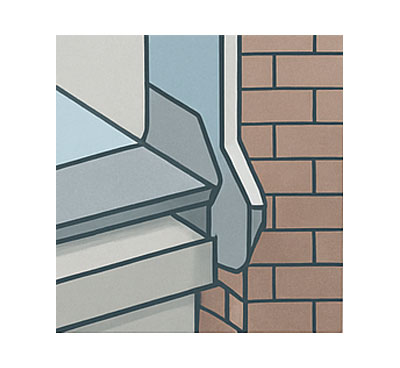
Pros & Cons
| Pros | Cons |
|---|---|
| Long-lasting when detailed well | Mortar joints and laps can open |
| Serviceable without replacing full roof | Capillary drips if lead splits or is undersized |
Common Repairs
- Renew lead flashing and properly point chase
- Reseal stop-ends and step flashing overlaps
- Check for cavity tray and correct laps
- Resolve capillary tracking during heavy rain
Maintenance & Safety
Difficulty: Specialist
Maintenance: Annual visual check of mortar joints, laps and sealant; post-storm inspection.
Safety: Cutting chases at height; lead handling; dust — use RPE and edge protection.
Recent requests
- Mortar Joint Rake & Repoint — Hadley, Telford (14 Feb 2026)
- Install Lead Cover Flashing — Bradmore, Wolverhampton (12 Feb 2026)
- Cavity Tray Check Above Roofline — Stoke, Coventry (12 Feb 2026)
Lantern / Skylight
Glazed lanterns/skylights on solid roofs or orangeries; light-filled centres with perimeter roof areas.
Adding height and natural light, they’re common in orangeries and warm-roof upgrades. Modern units are well-designed, and rely on seals and drainage paths. Leaks at the base or cappings are common repairs if maintenance is neglected.
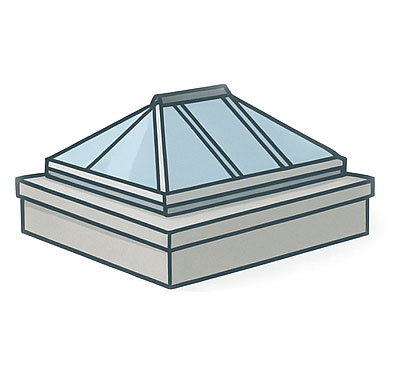
Pros & Cons
| Pros | Cons |
|---|---|
| Excellent light | Base seals and drainage need care |
| Premium look | Cappings can loosen with movement |
| Modern units have good thermal specs |
Common Repairs
- Renew base seal and clear frame drainage
- Refix loose cappings and ridge joints
- Replace failed/misted lantern glass units
- Reseal flashing where lantern meets roof
Maintenance & Safety
Difficulty: Moderate–Specialist
Maintenance: Clean frame channels; inspect base seal and cappings yearly; clear nearby gutters.
Safety: Work around fragile glazing; pad out tools; protect glass edges and finishes.
Recent requests
- Skylight Flashing Reseal — Abronhill, Cumbernauld (13 Feb 2026)
- Lantern Base Seal Renewal — Gleadless, Sheffield (12 Feb 2026)
- Wind Noise – Lantern Cap Adjustment — Drakies, Inverness (12 Feb 2026)
Note: Every conservatory is different. Use these guides as a general overview and always obtain a specialist’s assessment for your specific roof.